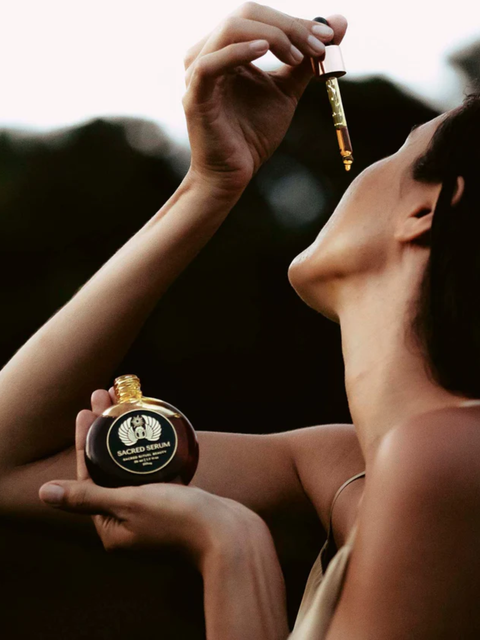
The Ultimate Guide To Skincare For Sensitive Skin
Key Takeaways:
- Understanding Irritants and Ingredients: Identifying common irritants like fragrances, dyes, alcohol, and certain preservatives is crucial for managing sensitive skin. Learning to read ingredient labels helps in selecting products that minimize the risk of irritation.
- Gentle Skincare Practices: Adopting gentle skincare practices, including selecting hypoallergenic and non-comedogenic products, performing patch tests, and establishing a soothing routine, can significantly reduce the chances of flare-ups.
- Lifestyle and Environmental Factors: Sensitive skin management extends beyond skincare products. Stress reduction, dietary considerations, fabric choices, and environmental adjustments play a vital role in maintaining skin health and preventing reactions. To learn more, visit our blog on Decoding Endocrine Disruptors: Understanding The Impact On Your Health And Environment.
Sensitive skin is a widespread issue, marked by an increased sensitivity to certain irritants unlike those with more resilient skin types. This condition may present itself through symptoms such as redness, itching, burning, or dryness, typically triggered by environmental elements, skincare products, or changes in diet. It's essential to grasp the subtleties of sensitive skin to manage its effects and avoid outbreaks. In this guide, we will explore the intricacies of sensitive skin, assist you in recognizing potential triggers, and offer methods to nurture your skin gently and efficiently. By adopting a considerate skincare routine, people with sensitive skin can maintain a balanced and healthy appearance.
To ensure your sensitive skin receives the care it needs, consider integrating Sacred Rituel's Glowing Skin Bundles into your routine. These bundles are crafted to soothe, protect, and nourish your skin, promoting a balanced and radiant complexion without causing irritation. Explore the options available and find your perfect skincare match today.
Celebrate the Sacred Ritual of SkincareElevate your everyday skincare into a sacred ceremony with Sacred Rituel's array of organic, unrefined ingredients. Pick the ideal solution for your skin type and start your journey to tranquility.
Ready to begin a tranquil skincare journey? Uncover a variety of soothing products tailored to your specific skin requirements. Initiate your exploration and embrace comfort. |
Identifying Common Irritants For Sensitive Skin
Fragrances And Dyes
Fragrances and dyes often irritate sensitive skin, leading to allergic reactions and dermatitis, despite making products more attractive. To safeguard your skin, choose "fragrance-free" or "unscented" products and avoid artificial dyes. Be cautious of labels containing "parfum" or "aroma" as they signal fragrances. Opt for items with natural colorants and scents to minimize irritation.
Alcohol And Preservatives
Alcohols, especially denatured alcohol, can dry out and irritate sensitive skin by removing its natural barrier. Preservatives like formaldehyde and parabens can also cause allergic reactions. Choose skincare products with gentle preservatives like ethylhexylglycerin or phenoxyethanol, and avoid those containing alcohol. Always conduct a patch test with new products to prevent irritation.
Harsh Exfoliants
Exfoliation removes dead skin cells and promotes cell renewal, but harsh methods can harm sensitive skin. Opt for gentle exfoliants like lactic acid, PHAs, or finely milled oatmeal for less irritation. Exfoliate once or twice a week and use a soothing moisturizer afterwards to maintain hydration and reduce inflammation.
Environmental Factors
Sensitive skin is especially prone to damage from UV rays, extreme temperatures, wind, and pollution. Protect it by using a broad-spectrum SPF 30+ sunscreen daily, wearing protective clothing, and avoiding peak sun hours. In cold or windy conditions, apply a rich moisturizer to protect your skin. Also, an antioxidant-rich serum can help guard against pollution and environmental damage.
Common Food Allergens
Diet impacts skin health; dairy, gluten, nuts, and shellfish can trigger skin problems like eczema, acne, or rashes in sensitive individuals. Track your intake in a food diary to identify triggers and consult a healthcare professional. They may suggest an elimination diet to find specific allergens. Eating anti-inflammatory foods like omega-3-rich fish, leafy greens, and berries can improve skin health and lessen sensitivity.
Selecting Gentle Skincare Products For Sensitive Skin
Choosing the right skincare products is pivotal for those with sensitive skin to avoid irritation and maintain a healthy skin barrier. Here’s a guide to help you select the most gentle and effective products for your sensitive skin:
Understand Ingredient Labels
It's essential to become familiar with ingredient labels to identify potential irritants and beneficial ingredients. Look for products with a short list of ingredients, as this typically indicates fewer potential irritants. Key ingredients beneficial for sensitive skin include hyaluronic acid, glycerin, ceramides, and niacinamide, which help to hydrate, soothe, and restore the skin's barrier.
Opt For Hypoallergenic And Non-comedogenic Products
Hypoallergenic products are formulated to minimize the risk of allergic reactions, while non-comedogenic products are designed not to clog pores. These types of products are ideal for sensitive skin, as they reduce the likelihood of irritation and acne breakouts.
Choose Products Specifically Formulated For Sensitive Skin
Many skincare brands offer ranges specifically designed for sensitive skin. These products are typically free from common irritants like alcohol, fragrances, and harsh chemicals. They also often contain soothing ingredients to help reduce redness and inflammation.
Patch Test New Products
Before applying a new product all over your face, it's crucial to perform a patch test to ensure it doesn't cause irritation. Apply a small amount of the product to a discreet area of skin, such as behind the ear or on the inner arm, and wait 24-48 hours to see if any reaction occurs.

Be Cautious With Essential Oils And Plant Extracts
While natural doesn't always mean better, especially for sensitive skin, some essential oils and plant extracts can be beneficial. However, others might be irritating. Research and patch test products containing these ingredients to ensure they're safe for your skin type.
For sensitive skin, maintaining balance is key. Add Sacred Rituel Body Oil to your routine for nourished, irritation-free skin. Crafted from 100% organic ingredients, this body oil soothes, heals, and rejuvenates while hydrating without clogging pores. Embrace the gentle care of Sacred Rituel Body Oil for the skin wellness you deserve.
Seek Professional Advice
If you're unsure about which products to choose or if your skin is extremely reactive, consult a dermatologist. They can provide personalized recommendations and help you develop a skincare routine that's safe and effective for your sensitive skin.
Developing A Sensitive Skin-Friendly Skincare Routine
Establishing a skincare routine that respects and nurtures sensitive skin can significantly reduce irritation and promote overall skin health. Follow these steps to create a sensitive skin-friendly skincare routine:
Step 1: Gentle Cleansing
Start with a gentle cleanser to remove dirt, oil, and impurities without stripping the skin's natural oils. Opt for fragrance-free, soap-free, and pH-balanced cleansers that won't disrupt the skin barrier. Use lukewarm water and avoid rubbing your skin harshly; instead, lightly massage the cleanser in circular motions before rinsing it off gently.
Step 2: Soothing Toner
After cleansing, apply a soothing, alcohol-free toner to help restore the skin's pH balance and hydrate it. Look for toners containing ingredients like aloe vera, chamomile, or rose water that calm irritation and reduce redness.
Step 3: Hydration And Moisturization
Hydrate your skin with a gentle, fragrance-free moisturizer formulated for sensitive skin. Look for products containing ceramides, hyaluronic acid, or glycerin, which help to lock in moisture and strengthen the skin's natural barrier. Apply moisturizer while your skin is still damp to maximize absorption.
Step 4: Sun Protection
Sensitive skin is particularly susceptible to sun damage, which can exacerbate irritation and redness. Apply a broad-spectrum sunscreen with an SPF of 30 or higher every morning, even on cloudy days. Choose mineral sunscreens containing zinc oxide or titanium dioxide, as they are less likely to cause irritation than chemical sunscreens.
Step 5: Targeted Treatments
If you use serums or treatments for specific skin concerns (like redness, dry patches, or aging signs), ensure they are suitable for sensitive skin. Introduce new products one at a time and monitor your skin's response. Avoid using multiple active ingredients at once, as this can overwhelm sensitive skin.
Step 6: Nighttime Care
In the evening, follow a simplified routine that allows your skin to rest and rejuvenate overnight. You can skip the toner and apply a nourishing night cream or a sensitive skin-friendly serum to support skin repair while you sleep.
Bonus Tip: Regularly Assess Your Skin's Needs
Sensitive skin can vary in its needs and reactions over time. Regularly assess how your skin feels and looks, adjusting your products and routine as necessary. If you experience prolonged irritation or discomfort, consult a dermatologist for guidance.
Tips For Maintaining Healthy, Reaction-Free Skin
Maintaining healthy, reaction-free skin involves more than just a good skincare routine. Here are additional tips to help you keep your sensitive skin in the best condition:
Minimize Stress
Stress can exacerbate skin sensitivity and trigger flare-ups. Incorporate stress-reduction techniques such as deep breathing, yoga, meditation, or any relaxing activities that help you unwind and reduce stress levels.
Maintain A Healthy Diet
What you eat can impact your skin. Aim for a balanced diet rich in fruits, vegetables, lean proteins, and healthy fats. Foods high in antioxidants can help protect the skin from damage. Stay hydrated by drinking plenty of water throughout the day to help maintain your skin’s moisture balance.
Be Mindful Of Fabric Choices
Certain fabrics, like wool or synthetic fibers, can irritate sensitive skin. Opt for soft, breathable fabrics such as cotton or silk that are gentler on the skin. Also, ensure your laundry detergent is fragrance-free and designed for sensitive skin to avoid potential irritants.
Adjust Your Environment
Environmental factors like dry air can deplete moisture from your skin, leading to irritation. Use a humidifier to add moisture back into the air, especially during winter or in dry climates. Also, be mindful of air quality; pollutants and allergens can trigger skin reactions.
Regularly Update Your Skincare Products
Skincare products can expire or degrade over time, leading to increased risk of irritation. Regularly check the expiration dates and consistency of your products, replacing them as needed. Additionally, pay attention to how your skin responds to products over time; what works now may not always be suitable.
Listen To Your Skin
Pay attention to your skin's signals. If you notice redness, itching, or discomfort, assess your recent skincare, diet, and environmental changes to identify potential triggers. Don’t hesitate to eliminate a suspect product from your routine or to seek advice from a dermatologist.

Keep A Skin Diary
Consider maintaining a diary to track your skincare routine, product use, dietary habits, stress levels, and skin reactions. This can help you identify patterns and triggers, making it easier to manage your sensitive skin effectively.
Final Thoughts
Managing sensitive skin goes beyond avoiding certain products; it's an integrated approach that marries skincare with lifestyle choices. It emphasizes mindfulness in how we treat our skin and how we live our lives, recognizing that diet, stress, and environmental factors all play crucial roles. This approach advocates for a personalized, adaptive strategy to skincare, focusing on understanding and respecting our skin's unique needs. Ultimately, it's about fostering an environment where our skin, and by extension, we ourselves, can flourish, highlighting the importance of a holistic view in achieving a balanced and healthy skin condition.
Embrace the holistic approach to sensitive skin with the Sacred Set, featuring the Sacred Beauty Serum and Rose Toner. This duo works harmoniously to hydrate, soothe, and revitalize your skin, respecting its unique needs while protecting against environmental stressors. Discover the transformative power of these meticulously crafted products and give your skin the nurturing it deserves. Start your journey towards a radiant, balanced complexion today.
Read Also:
- 7 Steps To Radiant Skin: Your Guide To Achieving Balanced, Glowing Complexions With Pure Ingredients
- Winterproof Skin: Combat Dry And Itchy Skin This Winter
- Regenerative Farming For The Future + The Beauty Industry
Frequently Asked Questions
What are the signs of sensitive skin?
Signs of sensitive skin include redness, itching, burning, dryness, and reactions to skincare products or environmental changes.
How often should people with sensitive skin exfoliate?
People with sensitive skin should exfoliate once or twice a week using gentle exfoliants to avoid irritation.
Can diet affect sensitive skin?
Yes, diet can impact sensitive skin. Common allergens like dairy, gluten, and nuts may trigger reactions. Incorporating anti-inflammatory foods can improve skin health.
Why is it important to patch test new skincare products?
Patch testing helps prevent potential reactions by testing a product's compatibility with your skin before full application.
What type of sunscreen is best for sensitive skin?
Mineral sunscreens containing zinc oxide or titanium dioxide are less likely to cause irritation and are recommended for sensitive skin.
How can stress affect sensitive skin?
Stress can exacerbate skin sensitivity, leading to flare-ups. Managing stress through relaxation techniques can help mitigate this.
Are natural or organic skincare products always better for sensitive skin?
Not necessarily. Some natural or organic ingredients can still irritate sensitive skin. It's important to understand your skin's specific triggers.
Why should you avoid skincare products with fragrances and dyes if you have sensitive skin?
Fragrances and dyes are common irritants that can cause allergic reactions or dermatitis in sensitive skin.
How can you tell if your skincare product is expired?
Check the expiration date, changes in color, consistency, or odor. Expired products can increase the risk of irritation.
Why is hydration important for sensitive skin?
Hydration helps maintain the skin's barrier function, preventing irritants from penetrating and causing reactions.
Sources:
- Duarte, I., Silveira, J. E. P. S., Hafner, M. de F. S., Toyota, R., & Pedroso, D. M. M. (2017). Sensitive skin: review of an ascending concept. Anais Brasileiros de Dermatologia, 92(4), 521–525. https://doi.org/10.1590/abd1806-4841.201756111
- Katta, R., & Schlichte, M. (2014). Diet and dermatitis: food triggers. The Journal of Clinical and Aesthetic Dermatology, 7(3), 30–36. https://www.ncbi.nlm.nih.gov/pmc/articles/PMC3970830/
- Sander, M., Sander, M., Burbidge, T., & Beecker, J. (2020). The Efficacy and Safety of Sunscreen Use for the Prevention of Skin Cancer. Canadian Medical Association Journal, 192(50), E1802–E1808. https://doi.org/10.1503/cmaj.201085
- Shenefelt, P. D. (2010). Psychological interventions in the management of common skin conditions. Psychology Research and Behavior Management, 3, 51–63. https://www.ncbi.nlm.nih.gov/pmc/articles/PMC3218765/



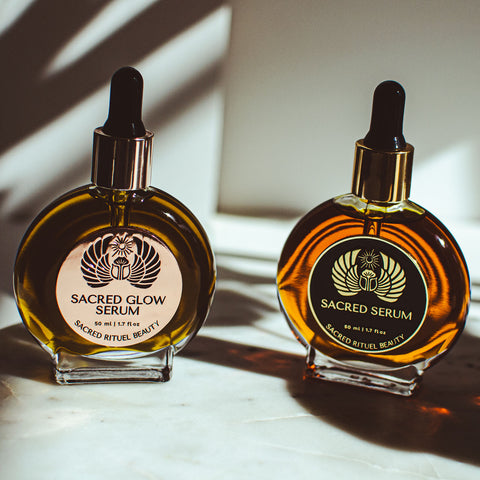
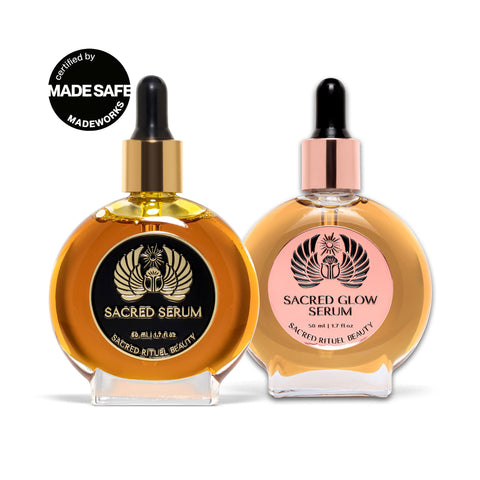
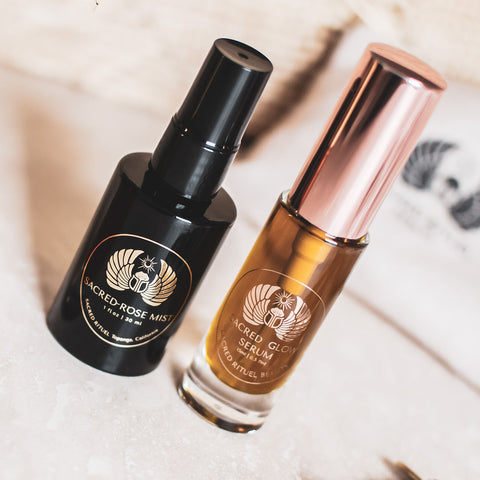
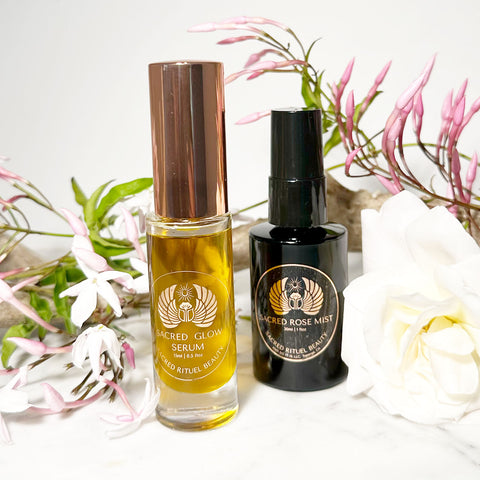

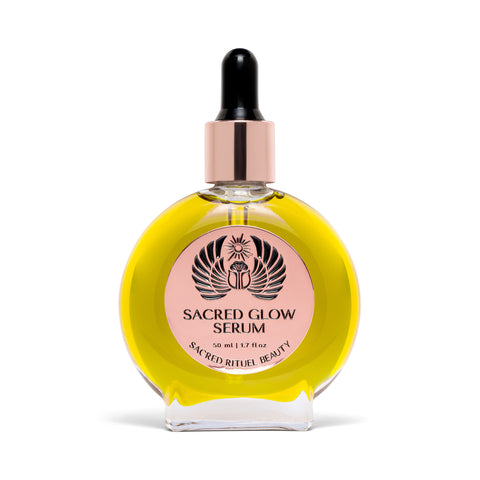
Comments (0)
There are no comments for this article. Be the first one to leave a message!